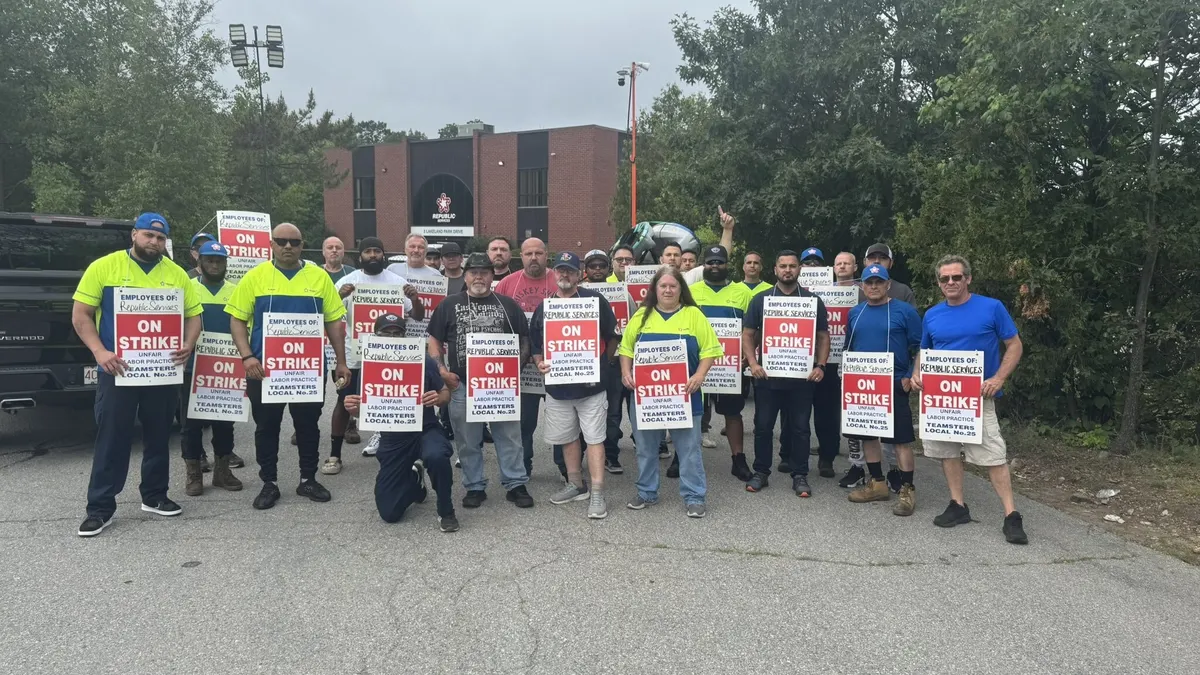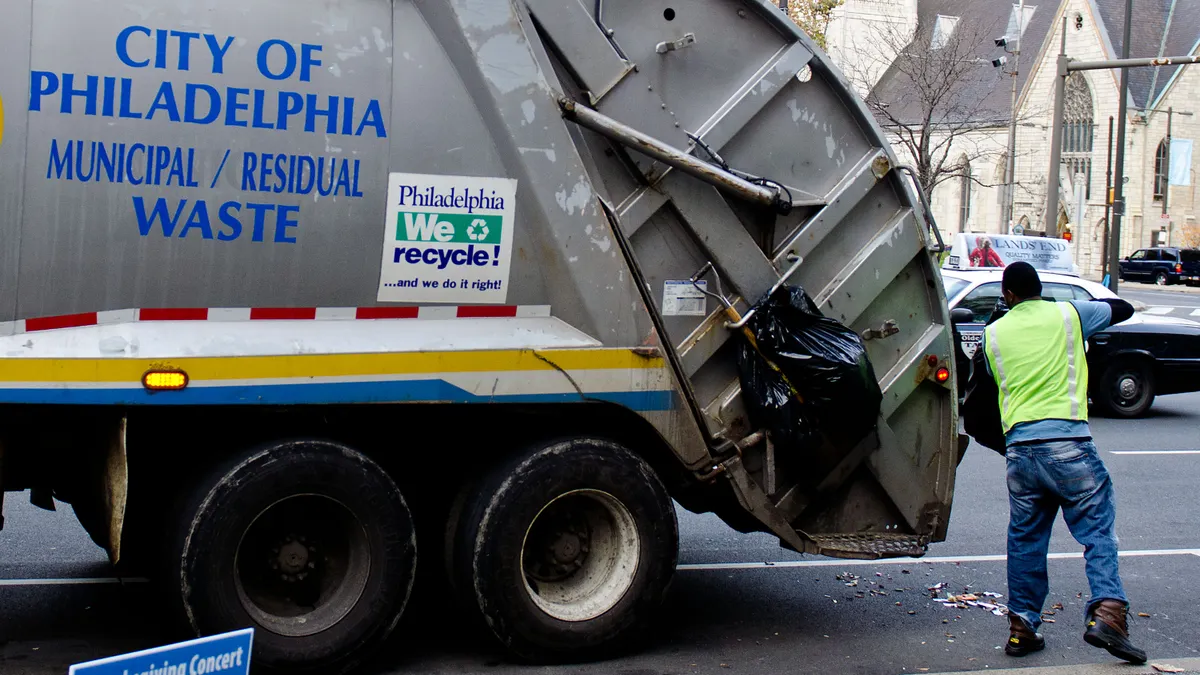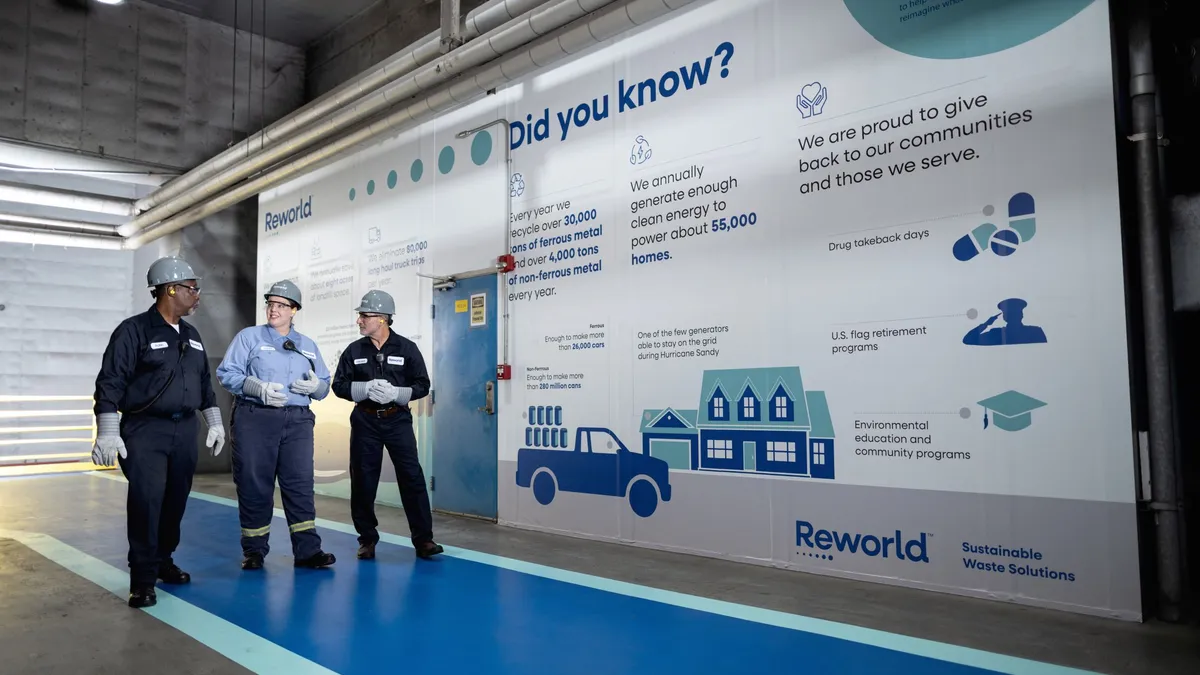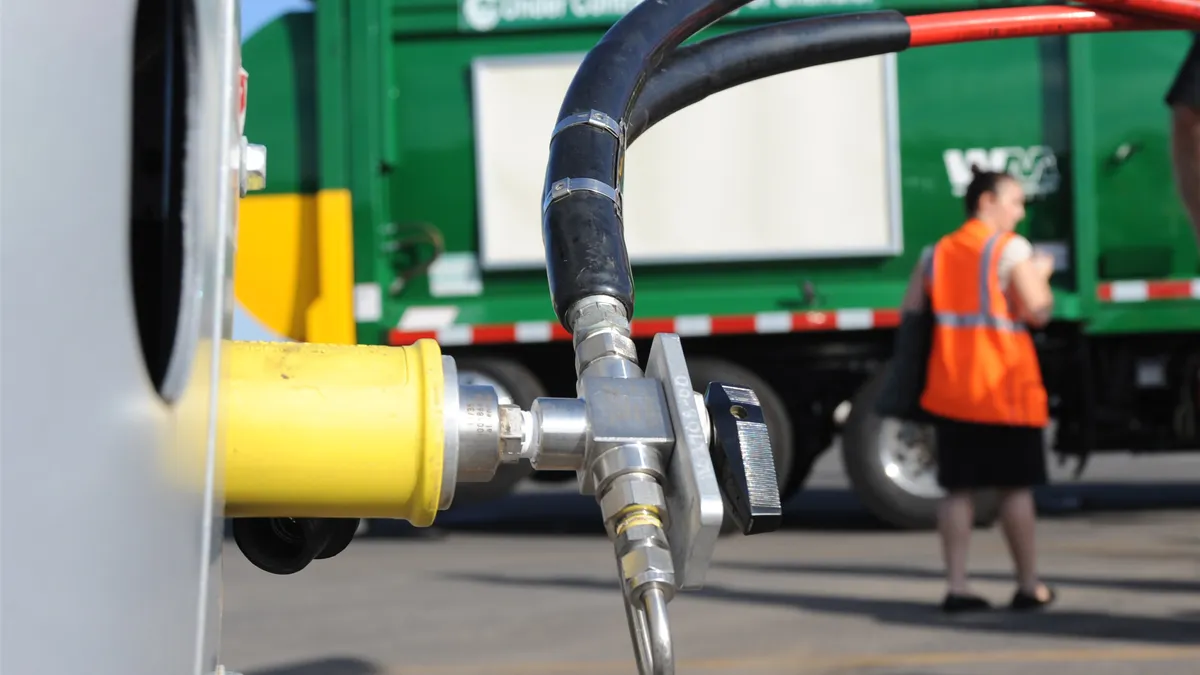The one-year grace period for New York's updated commercial recycling rules ended in August and the city is getting serious on enforcement.
New York's Department of Sanitation (DSNY) has issued at least 977 violations to generators and processing facilities for not following the city's new commercial recycling rules since Aug. 1. The city's Business Integrity Commission (BIC), which has enforcement jurisdiction over the collection and transportation of this material, has not issued any violations to haulers yet. BIC Commissioner Dan Brownell told Waste Dive that his staff is involved in multiple investigations and close to issuing violations to "at least two carting companies."
All businesses have been required to recycle metal, glass, plastic, beverage cartons, paper and cardboard since August 2016. DSNY's director of public affairs, Kathy Dawkins, said the commercial recycling rules don't allow for waivers due to fluctuations in commodity prices, but noted that both agencies "meet regularly with commercial waste haulers and other stakeholders to discuss any concerns they may have." BIC also confirmed that industry representatives raised concerns about markets for both glass and cardboard during the most recent meeting of its Trade Waste Advisory Board.
Prior to the 2016 change, New York's commercial recycling rules varied depending on the type of generator. This new rule standardized requirements regardless of business type and aligned them with the city's existing residential policies. It also went a step further, by allowing for single-stream collection of recyclable material if haulers registered online with BIC. As of October, many of the local industry's largest companies have signed up for that designation. All of this has been described by DSNY as a way to increase recycling participation and is seen by environmental advocates as a way to improve what are reportedly low commercial diversion rates. Leading up to the August enforcement date, DSNY conducted more than 10,000 site visits and nearly 100 trainings to help businesses prepare.
"We really want to maximize the resources we have and create a real deterrence factor, so that when we do catch people they get a hard hit."

Dan Brownwell
Business Integrity Commissioner
This has also been portrayed as one of multiple steps toward reforming New York's waste industry, which the city believes should culminate in the creation of a franchise zone collection system. Though it's also seen by many involved as the latest example of how New York's current administrative structure may not be built for such a drastic shift.
During a Sept. 18 City Council committee hearing on "zero waste" progress, members of the Transform Don't Trash coalition played a video showing recyclable material being commingled with refuse in a private collection truck. They described this as an example of how BIC's enforcement efforts were insufficient. This wasn't well-received by city officials, in part because BIC said it prefers to handle tips in a less public forum.
BIC Commissioner Brownell told Waste Dive that his team has followed up on every tip so far, including that video, but it's most helpful when the person filming or photographing violations can work with his agency directly. Unlike DSNY, which has dozens of enforcement agents that specialize in recycling, BIC has 10 investigators total and only two of them work on recycling full-time. The rest work on background checks for licensing and other areas outside of the waste industry. Because of this, Brownell said his team can be more effective by coordinating with DSNY agents that might be seeing repeated loads of recyclables dumped at transfer stations or sources on the street that see how collections are happening.
"To just go out and follow trucks is really the slow way to do this, without having some sense that a truck you’re following is from a company that isn’t following the rules," said Brownell. "We really want to maximize the resources we have and create a real deterrence factor, so that when we do catch people they get a hard hit."
When asked if requesting more dedicated recycling investigators in future budgets might be helpful, Brownell said he would rather see BIC focus on enforcing safety and licensing requirements. The agency is hosting its third safety symposium on Oct. 24 and working on a safety manual for the local industry that should be available early next year. While the importance of safety is undisputed by all involved in the commercial waste reform conversation, some see this disparity in resources as a sign that DSNY may be better suited to handle enforcement. If and when some form of zone collection system is established in the future, there could be even more regulations to enforce.
DSNY's role in the commercial waste sector has already increased in recent years, as a result of the 2030 waste plan and official city support for a zone system. Now that an $8 million consulting contract for a team led by Arcadis has been finalized, the city will be hosting its second zoning stakeholder meeting on Oct. 19. In addition to that broader zoning discussion, many attendees will also be thinking about the enforcement of commercial recycling rules and the drop in price for once reliable commodities such as cardboard.
Lingering questions about regional processing capacity for a proposed expansion of the commercial organics recycling mandate could also be a popular topic. All of this, in addition to multiple other regulations, is either the beginning of a bright new "zero waste" future, or an increasingly difficult business climate — depending on whom you ask.


















